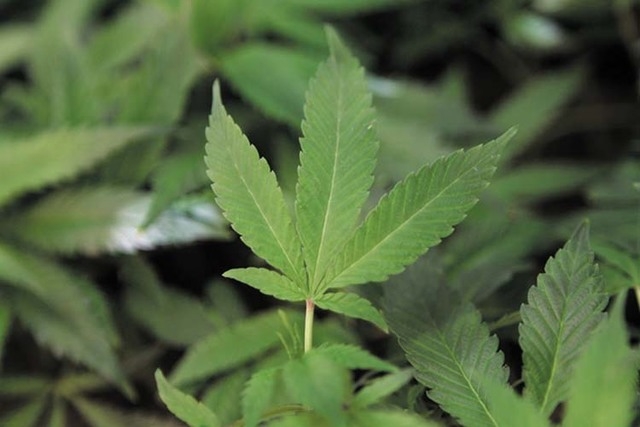Haze surrounds how state’s new medical marijuana law will affect employers, employees
If you don’t understand how the state’s new medical marijuana law will affect employers and employees, don’t feel bad.
Labor lawyers say they’re not sure how the rules will work, either.
Sure, the law formalizes some rights of people who have a doctor’s OK to smoke pot for medical reasons. But thanks to its conflict with federal law, which still says pot use is always illegal, the statute’s application to the workplace is hazier than the air in a roomful of tokers.
“This is uncharted territory. There’s this tension between federal and state laws, and until the Nevada courts have a chance to weigh in on how or if you can reconcile the laws, a lot of questions are going to be outstanding,” said Laura Thalacker, a shareholder who practices labor law with Lionel Sawyer &Collins.
Added Al Marquis, a director and employment attorney with the law firm of Marquis Aurbach Coffing: “The law in this area is really unsettled. Nobody really knows the answer to the question of who wins if a worker needs to do medical marijuana.”
Thalacker said it could take state courts a year or more to untangle the legal thicket. In the meantime, we’ve put together a primer on what you need to know about medical marijuana in the workplace.
We’ll get started with a rundown of what the laws say.
A LAW THAT’S NOT CRYSTAL CLEAR
Nevada’s law, which took effect April 1, allows Nevadans to buy marijuana prescribed by a doctor for medical use from a state-licensed pot dispensary.
And there are a lot of working Nevadans who’ll be using.
Nevada also has a law on how much employers have to accept a worker’s use of medical marijuana.It says companies don’t have to allow possession or use of medical marijuana on-site. But the employer does have to “attempt to make reasonable accommodations” for users who hold a state registry ID card to smoke medical marijuana, as long as that accommodation would not pose a safety threat to other workers or the public, or keep the employee from fulfilling his job duties.
If it sounds cut-and-dried, it’s not. That’s because the federal Controlled Substances Act still bans all marijuana use, doctor’s orders or not. There’s a “fundamental question” of whether the state can require employers to accommodate something that’s illegal by federal standards, Thalacker said.
Plus, the law’s vague language could lead to employee lawsuits.
To see why, look at existing regulations.
The federal Americans with Disabilities Act mandates that employers accommodate workers with illnesses that rise to the level of disability. And disability is any condition that interferes with basic life activities such as eating, sleeping, walking or sitting.
But the act does not protect current users of illegal drugs, Thalacker said. Also, even the 9th Circuit Court of Appeals, whose district includes Nevada, has ruled that employers can discriminate against users of medical marijuana.
Nor does Nevada’s law protect workers who clock in already high, Marquis said.
“If somebody’s taking any kind of medication that prevents them from performing their job, it would be a problem,” he said. “The ADA doesn’t mean somebody can just be overdosed at work and not be able to function, and there’s nothing the employer can do about it.”
Employers also have wide latitude in working with a disabled employee.
“You never have to accommodate under the ADA anything that is going to be illegal, or that will cause undue hardship or disrupt the workplace,” said Mark Ricciardi, managing partner of the Las Vegas office of labor law firm Fisher &Phillips.
Companies must tread a fine line, though. They may have to accommodate an illness, even if they don’t have to allow for marijuana use. Say an employee is using medical marijuana to treat the symptoms of multiple sclerosis. You don’t have to let her use pot on the job or come to work high, but you may need to give her additional time off to treat symptoms.
How much accommodation the law requires depends on the worker’s position.
LAWSUITS DEAD AHEAD?
If safety is paramount, a company doesn’t have to adapt at all. In fact, a business could face legal liabilities if it does. Federal regulations set separate safety standards governing commercial truck drivers, for example, and there’s not a court in the country that will force a trucking business to let marijuana users drive big rigs. Same goes if an employee is operating heavy factory machinery.
For employees not in a job with safety concerns, an employer will have to think out its position knowing that Nevada has a law saying it has to accommodate them. A manager may not be in the wrong if he fires a worker with a registry card, but it’s a good idea to consider whether the employee can serve instead in a noncritical desk job that wouldn’t pose a safety threat or undue company hardship.
And that’s where lawsuits are likely, Thalacker said. Nevada’s law doesn’t define undue hardship. Nor does it describe reasonable business purposes for not modifying a user’s job or working conditions, or deal with whether a worker can sue his employer for not providing reasonable accommodation.
It’s not even clear what qualifies as marijuana-based impairment.
“There’s no cut-and-dried way to measure impairment the way we do with alcohol,” Ricciardi said. “It’s going to be very difficult to know if someone who’s using medical marijuana is impaired.”
Employers have long turned to drug-testing to spot users, but those tests have become a whole new “gray area” that will require guidance from the courts, said Leigh Goddard, a partner in the law firm of McDonald Carano Wilson.
Companies can still run drug tests, but they should be careful with disciplinary action based on results of random tests on workers functioning well in noncritical jobs such as office or desk work, Marquis said.
“If someone is doing their job adequately, and they have a prescription from a doctor to take a substance that has been legalized by the Nevada Legislature, and you say they can’t use the product at all, that’s when litigation could happen,” he said.
Thalacker agreed there’s an “open door” for workers to claim they shouldn’t be fired for a positive drug test if they’re not in a safety position, and if use hasn’t affected performance.
“It’s very risky for an employer to just say, ‘I’m going to fire any employee who has a medical registry card.’ That would not be advisable,” she said. “If an employee has a card, they may have a disability that’s protected, especially in light of having a Nevada statute where it’s clear legislators wanted to give some protection. If you’re firing them just because they have a card, and their use has not in any way impacted the work environment, it’s very risky.”
Here, too, an important question hangs unanswered: These rules apply to employees, but do they also affect job applicants?
“We’re in a gray area on hiring. If you have illegal drugs in your system, an employer can make that a condition of not hiring you. The employer can’t do the same with prescription drugs,” Marquis said. “Now that medical marijuana has been legalized in Nevada but not federally, which category will the job applicant fall in?”
Whether you’re an employer, employee or job candidate, take basic precautions to protect yourself.
SOME SHREWD MEDICAL ADVICE
For starters, every business needs to update drug-use rules. It helps to cite the federal statute that makes pot illegal under any circumstance, and to reassert based on that law that use is never allowed on the job. The handbook should also note that a medical-marijuana registry card is not a defense against criminal action if an employee were under the influence while operating a commercial vehicle, airplane or other heavy equipment, Goddard said.
Thalacker said the language she’s adding to clients’ workplace policies goes something like this: “The law says we’re not required to allow you to use in the workplace, and we’re not required to change your working or job conditions. But in some circumstances consistent with the requirements of existing law, some reasonable accommodations may be available if you hold a valid registration card; if it’s not a safety issue; if it’s not an undue hardship for the employer; and if the employee can continue to perform all job duties.”
If you have to fire a worker for pot use that affects job performance, documentation is critical. Keep a written track record of incidents, reprimands and disciplinary actions.
Comprehensive, written job descriptions also become vital, in case a company has to explain why it can’t accommodate a worker.
For employees, a plan of action is less clear.
Some attorneys think it’s best to be upfront about medical pot. Others say workers don’t owe their company any more details than they’d owe if they were on an antidepressant or an antibiotic.
Workers who volunteer their registry card should know there’s “nothing they can do to guarantee they are going to keep their job,” Thalacker said.
Still, an employee who tests positive for drugs might want to show his card to justify the substance in his system, Marquis said.
Marquis also had medical advice: Ask your doctor to prescribe a strain of marijuana with high levels of cannabidiol, the pot substance that has therapeutic effects, and low levels of THC, the chemical that makes you high. Such strains impair little, or not at all, he said.
In general, employers can relax a little; employees, not so much. But that balance could change as employees take their cases to courts.
“Decisions in other states about an employer’s right to fire employees for medical marijuana use generally have been very favorable to employers,” Thalacker said. “But the law in this area is continuing to develop and will be watched closely.”
Contact reporter Jennifer Robison at jrobison@reviewjournal.com or 702-380-4512. Follow @J_Robison1 on Twitter.






















